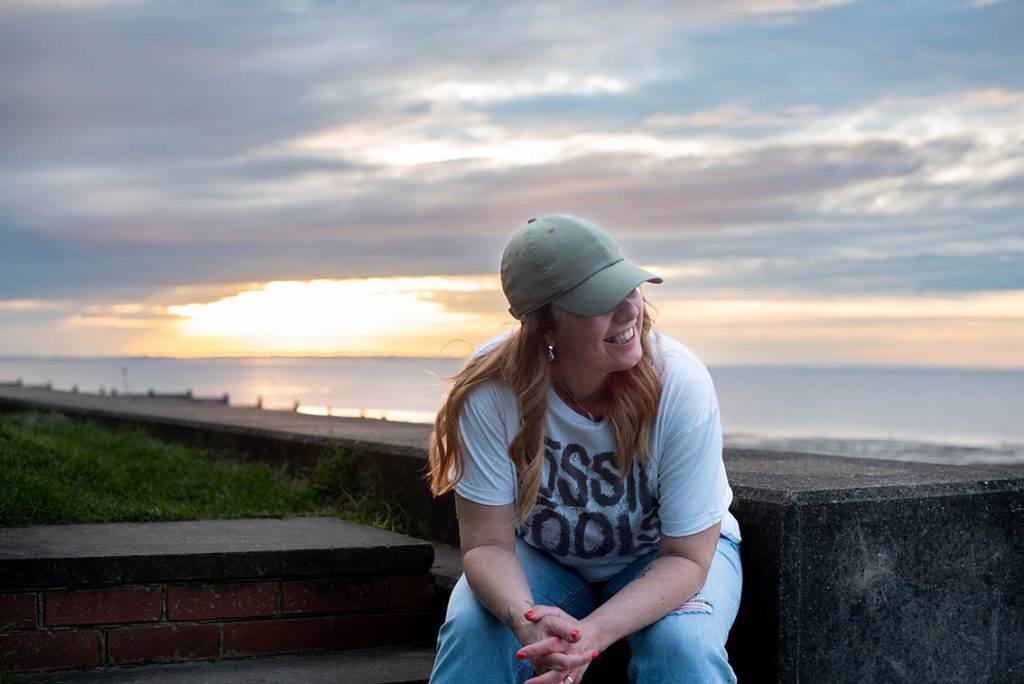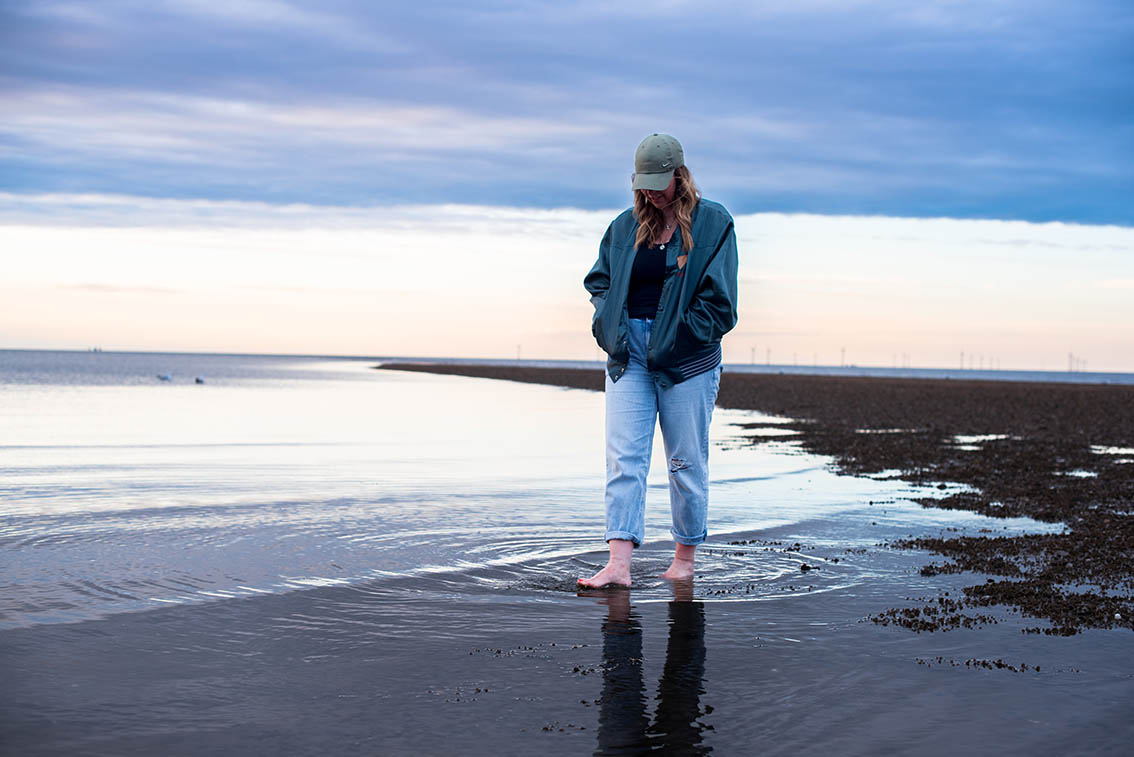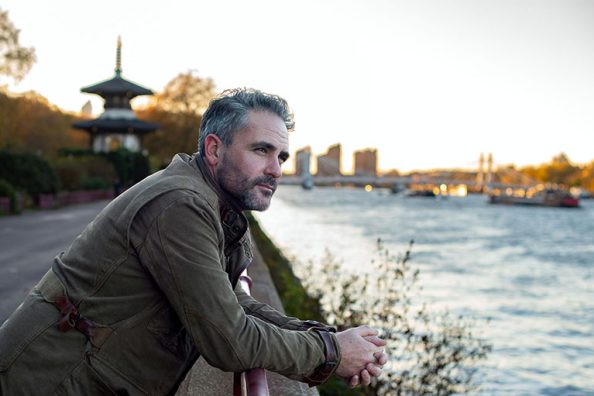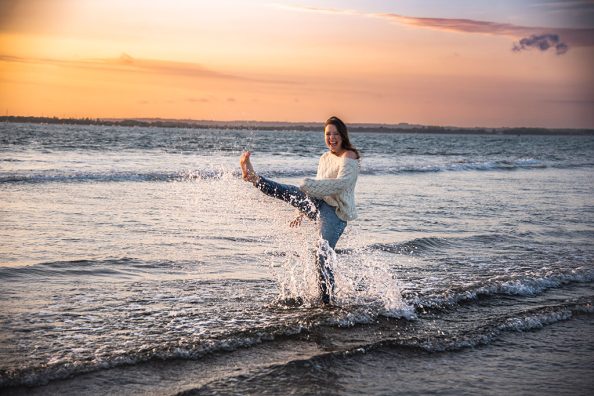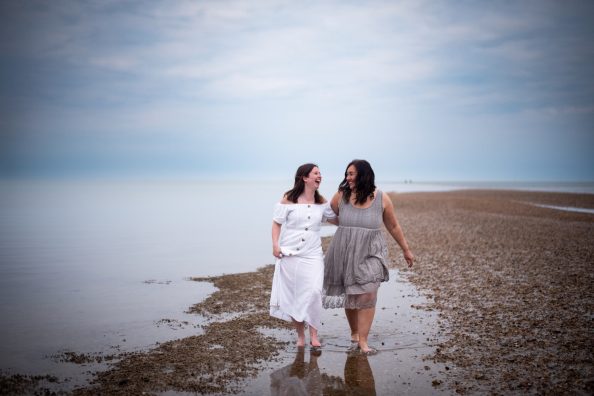“I tried to unwake myself from it, but once you’re awake, you’re awake…”
Climate activist and counsellor Rachel White talks about how adventure led her on a path of civil resistance, and of the sacrifice and conflict she feels as a wife, mother and grandmother when taking direct action with environmental activist group Just Stop Oil. As our Earth warms at an unprecedented rate, meet the driven and spirited woman behind the controversial and often-vilified label of climate protestor…
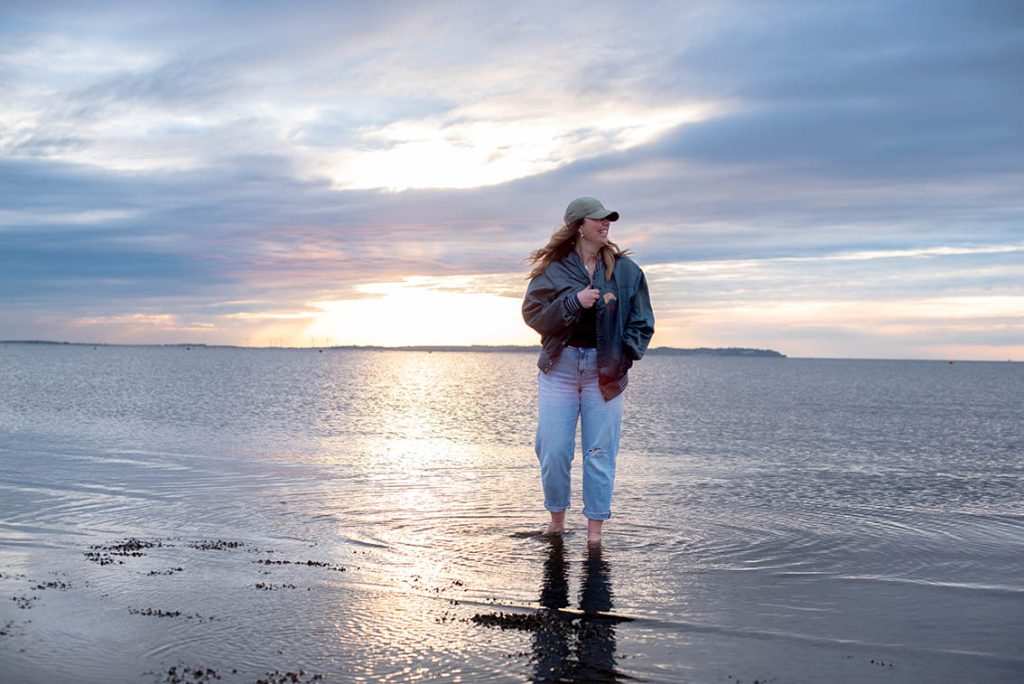
“What do you think about when you’re in the cells?” I ask.
She frowns a little, looks out of the window for a few seconds, before turning back to me with her answer.
“I’m thinking about my friends in the other cells.”
It’s a poignant answer. One of many which Rachel offered in the few hours that we spent sitting in a booth at The Marine Bay Hotel on the seafront in the seaside town of Tankerton, Kent. As a sentence, it says a lot. It’s loaded with misdemeanour, which is intriguing, right? There’s a sense of loneliness, yet underneath there’s connection. A tribe. A purpose. A hell of a lot of resilience too. It’s a fitting introduction to Rachel.
For the last three years, I’d been collecting stories and images of ordinary women with extraordinary mindsets just like Rachel, adding them to a sea-themed portfolio which I’ve called the #makingwavesproject. I was excited about meeting Rachel and getting to hear more about climate activism.
What first strikes me about Rachel is her smile and enviably wavy brown hair. Dressed in faded ripped jeans, grey hoodie, and trainers, she has a trendy slouchy edge to her. I notice a silver pendant around her neck depicting the tree of life. In the foyer of the hotel, she wanders off in search of tea and coffee. There’s a distinctive essence about her, that of a woman who knows exactly what she wants.
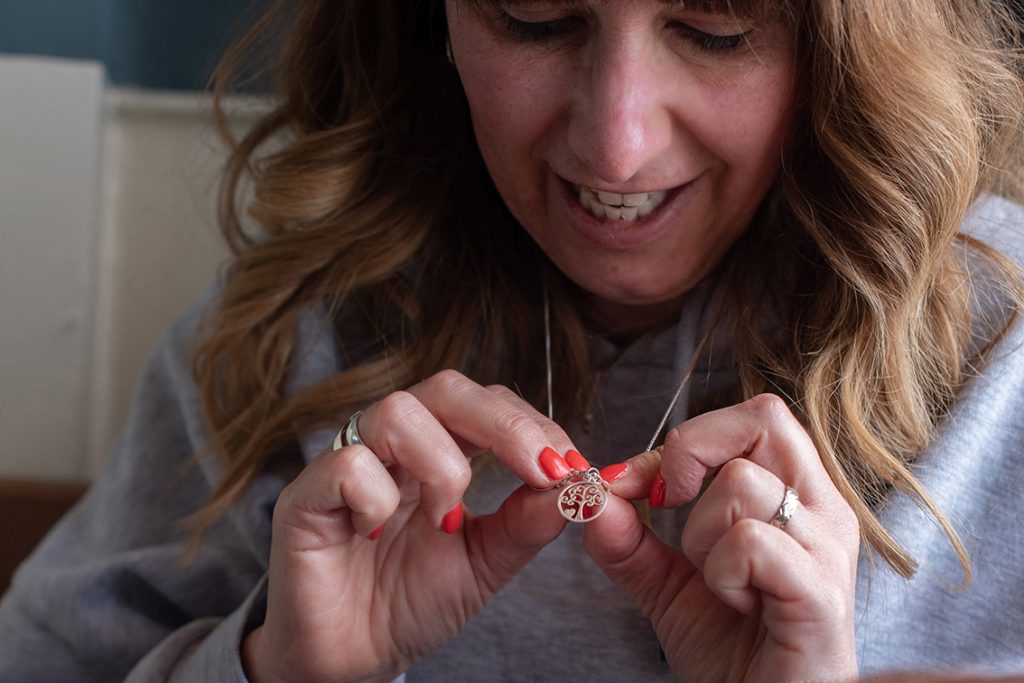
“So, tell me how all this started,” I say as we settled down in our seats. I place my phone on the circular table and press the red record button. A waiter brings me a pot of tea and her a cup of coffee.
“It all goes back to a menopausal meltdown,” she starts with a smile.
The beginning
Rachel takes me back to 2010 when she turned 40 and found herself struggling with symptoms of perimenopause. It took her a good eight years to find a responsive GP who started her on HRT. By this point, Rachel was deep in depression; self-neglecting, not exercising, washing, or socialising. A lot of the time, she isolated herself in her bedroom.
“I was a shadow of the old me,” she recalls. “Honestly, I did not care about anything. I felt like nothing mattered anymore.” At this point, Rachel’s eyes brighten. “But something changed one day when I listened to a podcast about walking the Camino de Santiago.”
The Camino, Spanish for ‘way’ or ‘path’, led Rachel along the route of a legendary pilgrimage to the striking Cathedral of Santiago in northwest Spain. It involved a five-hundred-mile solo trek over five weeks, walking up to 18 miles a day, living off the contents of her backpack and immersing herself in nature.
“I returned to the UK very much a changed person. I’d realised that, as human beings, we need very little to be content, and I felt very much at odds with the life I’d known before my travels. Back home, I noticed the traffic pollution even more, the people rushing around, the consumerism and waste, and the lack of green spaces. I felt a little ashamed to be human.”
Deeply troubled by this existential realisation, Rachel stepped up to join the fight against the biggest health threat facing humanity. There’s no wriggling away from the unequivocal scientific evidence for the warming of the world’s climate system caused by human activity, mainly from the widespread use of fossil fuels. The intense weather we are seeing across the globe will worsen, but scientists assert that urgent action can limit the detrimental effects.
This once-in-a-lifetime chance is what Rachel is understandably banging the drum for. Smashing the cymbals, too. In 2019, she found herself in London’s Trafalgar Square, participating in her first protest at Extinction Rebellion’s October Rebellion. In 2021, Rachel joined the group in walking 500-miles from London to Glasgow over eight weeks, arriving in the city for the start of the climate change summit COP26.
“This was a turning point for me,” Rachel explains, “I found the outcomes of COP26 disappointing. I saw people crying knowing that they were going to lose their islands due to rising sea levels or knowing that their people were going to starve.” She looks sombre for a moment. “Yes, it really affected me.”
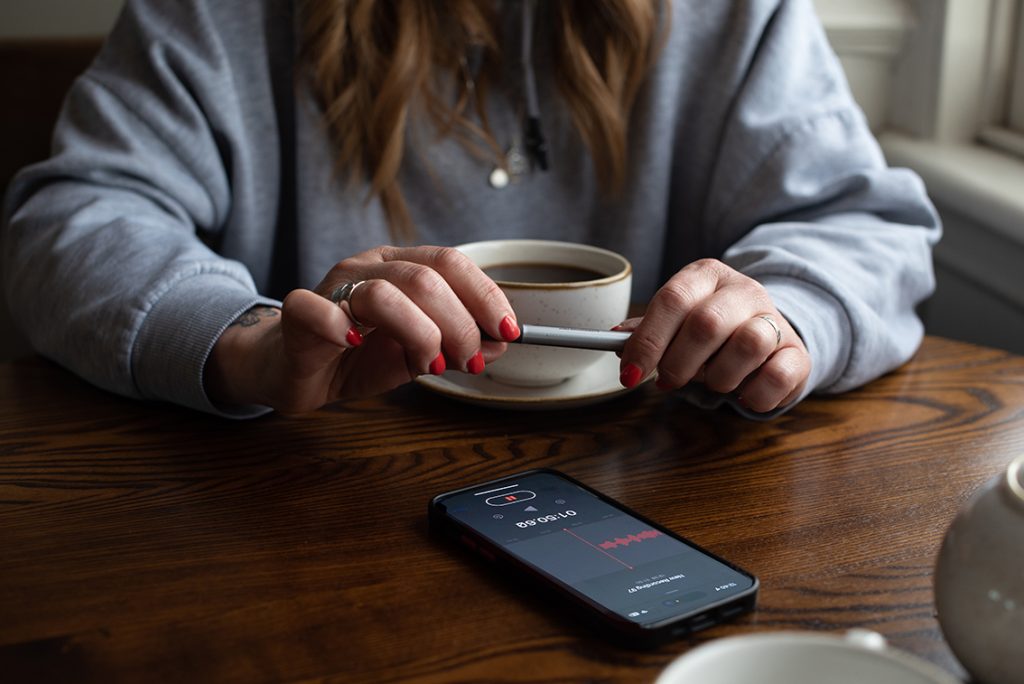
Taking action
This inaction left Rachel with a sense of injustice and grief and, spurred on by these emotions, she joined Extinction Rebellion at a protest at Marble Arch in London in April 2022. She showed me a video clip of her standing firmly in the road holding a placard whilst being asked to move by a female police officer. In response, Rachel sat down in the road, motionless and determined. It’s gutsy footage, intense to watch. She was arrested and taken into custody.
“What was that like?” I ask, curiously.
“When I am in a police cell, yes, I feel anxious but to be honest I think less about myself and more about those people in the global south that have it far worse. Indigenous people who try to protect their lands often are beaten, murdered or go missing. In the cell, I have a mattress, a toilet in the corner and no window and its weird when the door is locked, I have to mentally prepare for being in there for 24 hours, so I ask for a book which is one of our human rights. I don’t know what the time is and so it can be disorientating but I read a bit, nap a bit, do yoga, sing songs to kill time. I think of home, and remember there is no place like home and that’s why i am in the cell because we only have this one planet to call home …”
“How do your family feel about it?”
“I think it’s too emotional for them to express. We do not really talk about the time I am away. I guess it’s too hard for us all and I do often have guilt about the impact it may have on them. It is hard.”
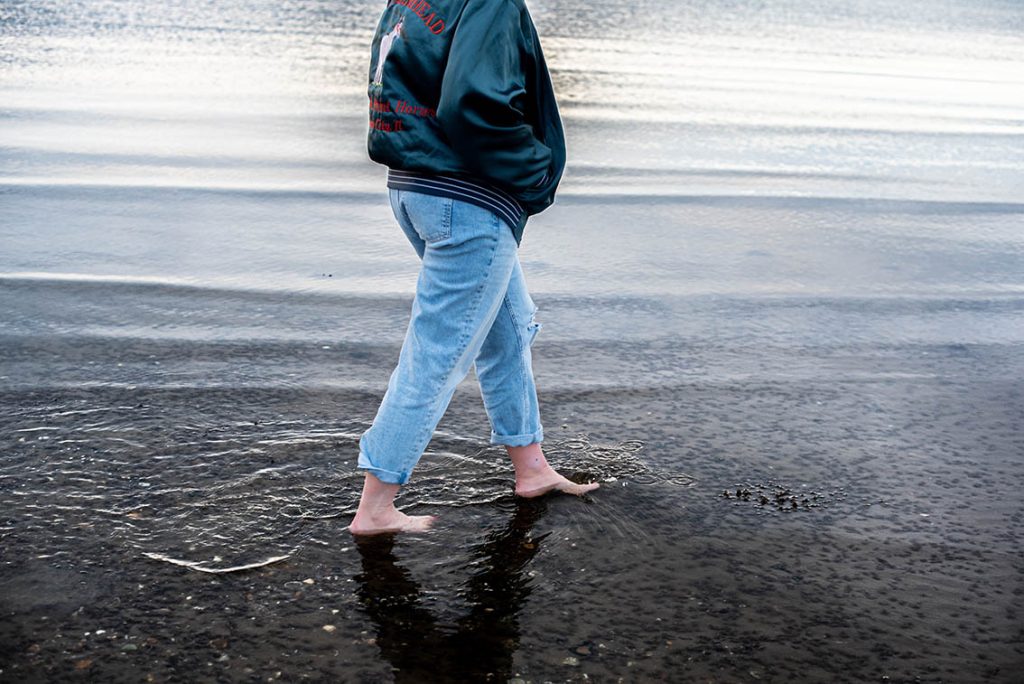
Undeterred
Instead of dampening Rachel’s spirits, these experiences did the very opposite. In October 2022, Rachel took action to save an ancient oak tree in her Essex village from being cut down to make space for 600 new houses. It’s a familiar saga, played out across a thousand villages, affecting a thousand trees and communities. We often find ourselves torn between the facts that trees are vital to our existence, but the country needs more affordable housing, something which I raised with Rachel.
“We drew up alternative plans for the developers so the tree could stay and the houses could still be built,” she explained, “but they weren’t considered, and so I ended up living in a tent at the foot of the tree for two weeks in protest,” Rachel explained, seeing my eyes widen in surprise. “The local community were amazingly supportive. More people came to live at the tree. Nobody wanted to lose it.”
The protestors were issued injunctions by the developers to prohibit further action. In February 2023, Rachel – understandably not prepared to risk losing her assets – stepped away from the tree. At this point, I foresaw that there would not be a cheery ending to this story.
“We had a funeral for the tree as it came down,” Rachel told me, confirming my fears. “The children were crying. The village was deflated. We all felt as though we’d been ignored. For me, it was about so much more than just one tree. It was yet another example of those in power putting profit before planet.”
Fighting the fossil fools
Despite this disheartening experience, Rachel’s passion did not waver. In light of the fact that the UK still gets an alarming 80% of its energy from fossil fuels, the source of greenhouse gases, she joined forces with Just Stop Oil, a non-violent environmental movement intent on stopping the government issuing of new fossil fuel licenses.
In May 2023, she took direct action against this by slow marching in central London. A month later, she did the same and this time was arrested on the Hangar Lane gyratory with seven other activists. She was charged with wilful obstruction of the highway for which she stands trial for in June of this year, with the potential for a fine or 6-month custodial sentence.
Still, Rachel persevered. On October 31st, 2023, the day the government announced the licencing of a further 27 new gas and oil explorations, she stepped into the road in Parliament Square along with 62 other people from Just Stop Oil only to be arrested after around 15 minutes of walking. She was arrested under section 7 of the new public order act and was taken into custody and released with bail conditions not to organise or protest or enter London within the boundaries of the M25.
Rachel recalls her words to her arresting officer on that day. “I asked why the MET commissioner was having everyday people arrested for non-violent protest and was choosing not investigate the real criminals, the senior government ministers who are driving climate policies that are killing millions…”
I let Rachel vent her feelings of injustice and I listen intently, but I want to keep the emphasis on Rachel for now and so I steer the story back to her.
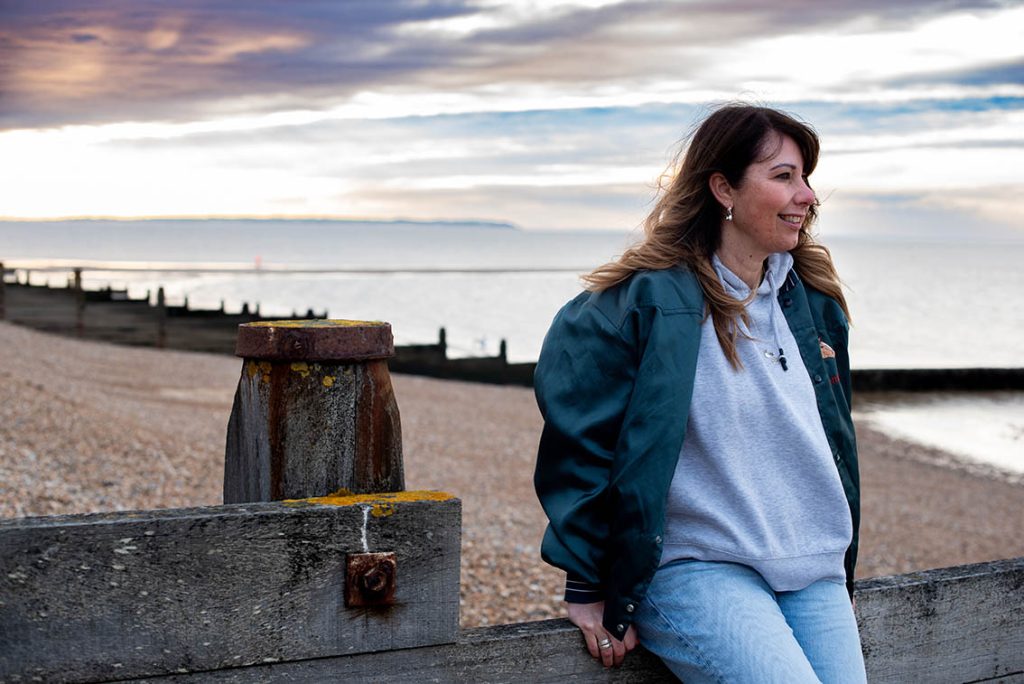
Conflicted
“What are you feeling when you hold up the roads?” I wonder, curious about the emotional toll activism is taking on Rachel.
“Conflicted,” Rachel admits, “but the bigger picture is the disruption we see on telly. Cars floating down the road in Dubai!”
I detect the frustration within Rachel but I notice how calm and in control she is when she speaks. This is, I decide, a learned behaviour from her training for peaceful activism, a very Ghandi-like approach.
“How do you keep calm in the throes of chaos?”
“I breathe deeply,” she answers, “amongst the drivers beeping their horns, lorries revving, people shouting things like, ‘Get a life! Get a job! Threats to kill and hurt me. Car bumpers pushing against my back, revving their engines, and police officers shoving me around. ”
“That must be incredibly difficult.”
“It’s intimidating,” Rachel nods, “but I hold my head up and look at them with compassion. They’re stuck in this system too. They have their reasons for behaving that way.”
“Do you ever get anyone saying nice things?” I ask.
“Yes,” she replies, “we get thanks and thumbs-up from people, but you don’t get to see this on the news. The story is so much more sellable if there’s hostility, and so you don’t get to hear about the man in his suit on the way to work who sees you get arrested, runs back to collect your banners for you and says, ‘Thank you for all you’re doing’.”
At the end of this sentence, Rachel chokes on her words and trails off. Her eyes well up and she turns towards the window, in the direction of the blue sea. I sense her bitter frustration towards the government for not doing enough to meet targets for cutting greenhouse gases, but I stay silent, giving her a moment to feel her emotions, and focus my eyes on her orange neon fingernails. After a minute, she comes back to me.
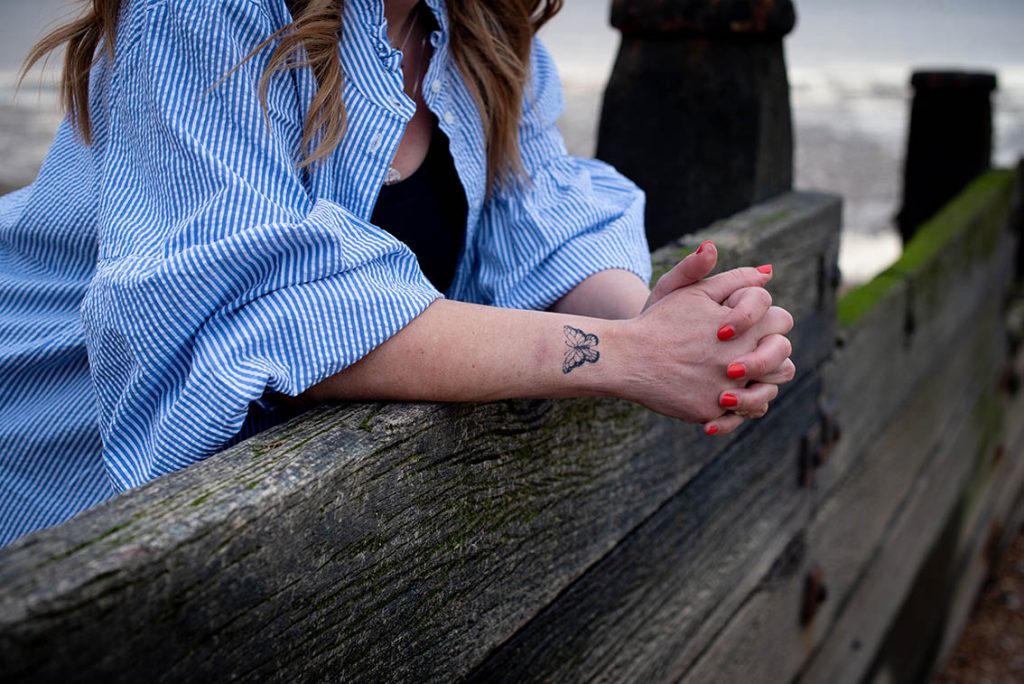
About Rachel
“It’s hard,” she says. “We’re dehumanised, made to feel ashamed, like we’re criminals. People don’t understand the conflict we feel and the sacrifice we make. I leave my family for a week, get on a train to London, go to stay with people I’ve only just met, and then take action, wondering if I’m going to end up in handcuffs. My phone stays safe at home. I don’t talk to my husband and children while I’m away. It would just be too hard for all of us.” Her voice wobbles a little with emotion but she swallows it. “Also, protesting is boring. Not being able to pee for long periods and lots of waiting around. It’s not a good day out!”
Despite having a loving family and an established activist community, I perceive a loneliness within Rachel. I can relate to how being different can be solitary, and yet I’m aware that if we don’t free ourselves to accept and follow that individuality of ours, we can feel repressed and unhappy anyway.
“I do feel isolated,” Rachel confirmed. “I think people find it hard to define me now. I don’t want my whole world to be activism, but it is a place where I don’t have to dumb myself down.”
Rachel pauses and takes a sip of her now lukewarm coffee. I curiously ask about the tattoo on her arm which reads Ultreia et Suseia. A Latin greeting used by pilgrims on the Camina de Santiago, she explains, which translates as ‘Onwards and Upwards”. She shows me three more nature inspired tattoos: mountains, a butterfly and two swallows.
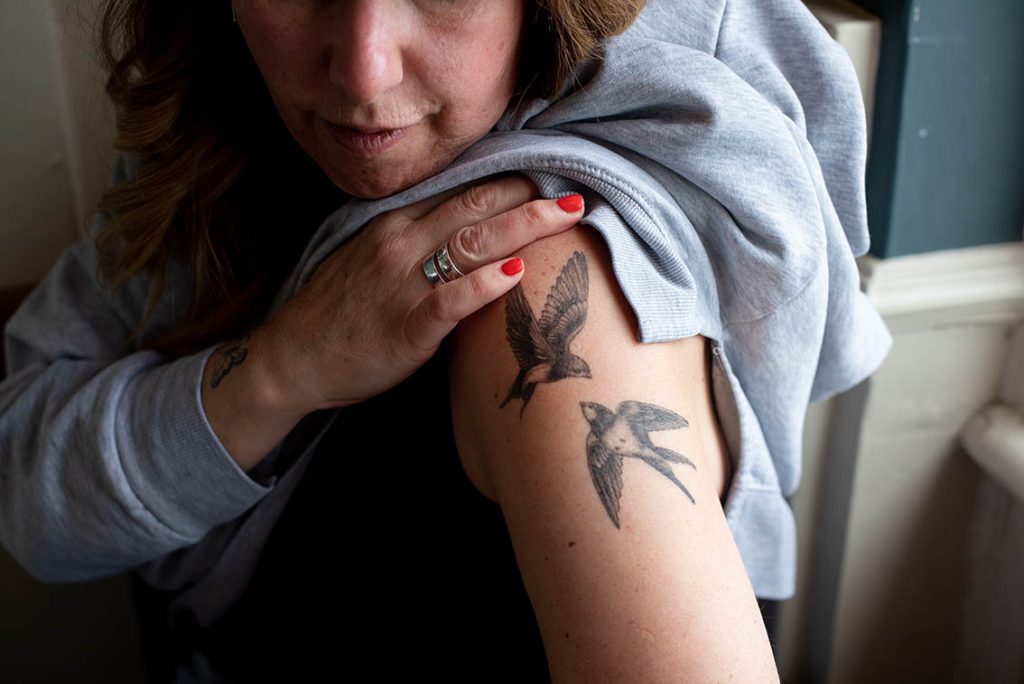
“Tell me about your passion,” I say. “Where does it come from?”
Rachel looks thoughtfully out the window for a minute, mulling over my question. “Growing up, I didn’t believe in myself,” she explains. “I was a young mum at 17 and I was in a controlling relationship which was emotionally abusive, and so I didn’t have a voice. I’ve found my voice through therapy, but activism too. I have something to say and finally the confidence to say it.”
“It can take women a long time to develop a voice,” I reflect, thinking about my own wrangle to do so.
“Yes, and now that I have it, I am not going to be silent,” she says determinedly.
“Tell me about how all this affects your mental health,” I urge.
“My mental health has improved since doing activism,” she says honestly, “because I am doing something about the situation. There was a time when I was struggling with the reality of it all and I tried to ‘unwake’ myself from it, but once you’re awake, you’re awake. There’s no going back. Yes, I’ve experienced trauma from being in custody. I used to think it doesn’t affect me but as a trained therapist myself, I know I must acknowledge it and have some self-care.
“What does self-care look like?”
“Walking in nature. Appreciating the lovely things which are still available to us and making the most of them. Being in the company of other activists although not talking about climate. Family is massively important to me. Spending as much time with my grandchildren as I can. Seeing the world through their eyes brings me joy and makes me feel motivated.”
“And what about your marriage,” I probe. “How does your relationship with your husband fare amongst all of this?”
She giggles. “He’s kind of kicking himself because he introduced me to my first protest. Of course, he is really scared when I go away for a week and we can’t have contact. It grates against us as a couple because he can’t imagine what it’s like, so I introduced him to some of the people from Just Stop Oil which helped him. He won’t take action with me because it would be too hard for him to watch me be verbally abused and pushed around.”
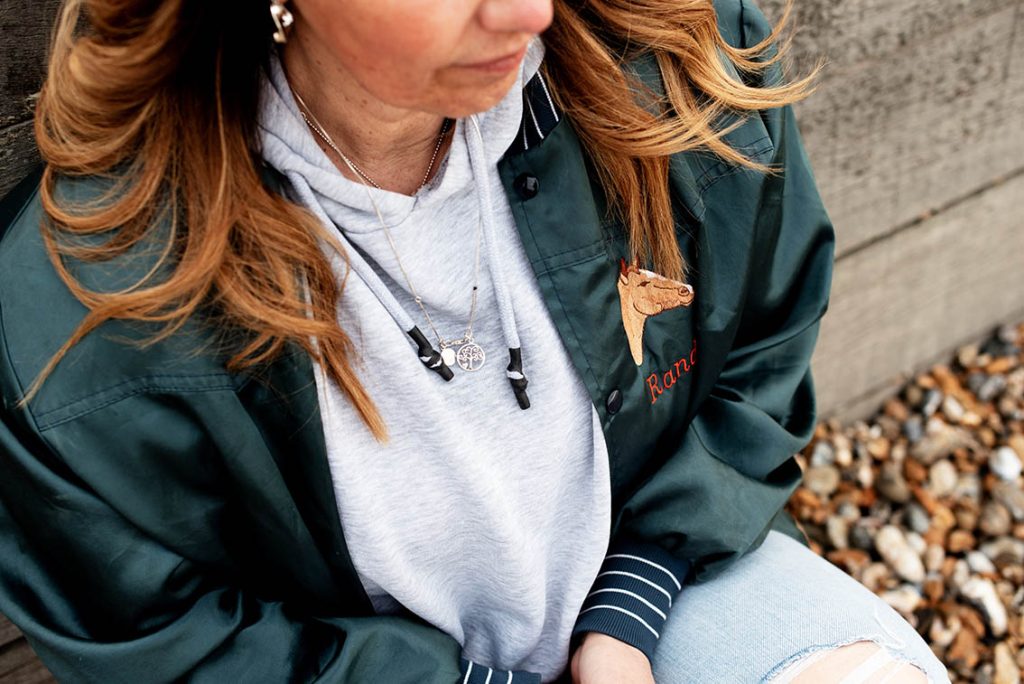
Rachel and I have talked for over two hours and have been truly terrible customers, sustained by only one hot drink each. Aside from a few teary moments, I get a sense of Rachel being a woman who is in control of a totally out of control situation. She knows her mind and her limits. Proudly, she tells me about her joyous moment of standing up to the big cats in suits at the annual gathering of Shell’s board of directors and shareholders (AGM).
“It was so bloody therapeutic to shout at the head of Shell,” Rachel laughs, her eyes big and bright. I hear about her and her activist friends smuggling banners into a Southend Council meeting by wearing them as skirts, feeling like Bucks Fizz when they were whipped off. I sense the camaraderie Rachel has found within the activist world.
“The best thing about it all, without doubt, is the people,” she smiled. “The common thread which brings activists together. The lack of judgement. Permission to be ourselves. Holding hands during a protest, feeling connected to each other, is a very spiritual thing.”
“And the worst thing?”
“The silence,” Rachel says, and I detect sadness in her eyes. “It’s not the things which people say to me which hurt, it’s the things they don’t say. I can return home after a protest, or after being held in custody, and friends don’t ask me about it. It’s awkward. I feel as though I’m seen as batshit crazy, that I’m going through a ‘phase’. You’d think people would talk to me about taking such a radical step. I mean, I’m a wife, a mum, a grandma. I never thought I’d be doing something like this and it makes me really sad that I have to.“
“You have to?”
“Yes,” she says firmly. “I don’t want to tell my grandchildren that I knew it would happen, that I knew there was science and technology to stop it, but I didn’t do anything because I thought it was hopeless.”
“So, you have hope,” I gleaned. “Tell me more about that. What are your hopes, Rachel?”
“I hope that people get so pissed off that there is a revolution,” she said with a wry smile, “although I’m not sure we’re in a world where revolutions happen anymore.”
I wrap up our conversation. I have all I need. The sun is sinking into the horizon and we have yet to take the photos to accompany this interview.
“How are you feeling?” Rachel asks me.
“Like my brain is going to explode,” I say, frankly.
“It’s a lot,” she agrees. “You’re probably the first non-activist I’ve said all of that to. It hurts me, in a way.”
“Why?”
“Because you have to cope with all of that.”
I look at Rachel, frown a little. Her consideration of my own wellbeing surprises for this story is not about me. It’s not about Rachel either and she was adamant that she was not portrayed as exceptional. The story is bigger than any of us. It’s literally about survival. I’m grateful that Rachel brought this story to me, for challenging my mindset, and for testing my writing skills, for it was paramount that I did justice to this life-or-death subject.
I do also feel fortunate that, in telling this crucial story, I have got to Rachel a little better and yet, I realise there is so much more truth for her to speak.
Show your support to Rachel and follow her on Instagram.
For further information about how you can get involved with taking direct action, follow Just Stop Oil on Instagram.
